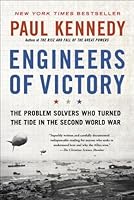Sublime
An inspiration engine for ideas
Stout had seen too much of the world to put his faith in motors. He was always prepared to rely on the tide and row. And he was always confident he would make it back to shore.
Robert M. Edsel • The Monuments Men: Allied Heroes, Nazi Thieves, and the Greatest Treasure Hunt in History
Several features make SOE an interesting organization to study within the larger field of special operations. SOE was created within weeks of Britain’s Commandos and the Long Range Desert Group. Moreover, its two predecessor organizations, GS(R) and Section D, trace their origins even earlier. Thus, SOE can legitimately claim to have been one of
... See moreA. R. B. Linderman • Rediscovering Irregular Warfare

As the Navy saw it, the Marine Corps’ solution was more than just an oversight. It was unacceptable. The coral wasn’t simply a technical problem, it was a tumor—one that needed to be found and cut out. The problem: At the time of the Tarawa operation, there had been only two units that might have been capable of such a venture, both of which had
... See moreBenjamin H. Milligan • By Water Beneath the Walls
She waved her gloved hand and a submersible appeared in the tank. It was smaller than the other two, no larger than a coconut, ovoid and dull, its surface an array of what looked like black eyes and larger depressions. “Not just invisible—or nearly so—but also as silent as I can get it. Its propellers oscillate randomly through a series of
... See moreRay Nayler • The Mountain in the Sea
In January 1942, two memoranda arrived on Holcomb’s desk within a week of each other suggesting the creation of Marine Corps commandos. The first was from his superior, Admiral Ernest J. King, the recently appointed Chief of Naval Operations. As enamored with defense as he was with temperance—“When they get in trouble they send for the
... See moreBenjamin H. Milligan • By Water Beneath the Walls

